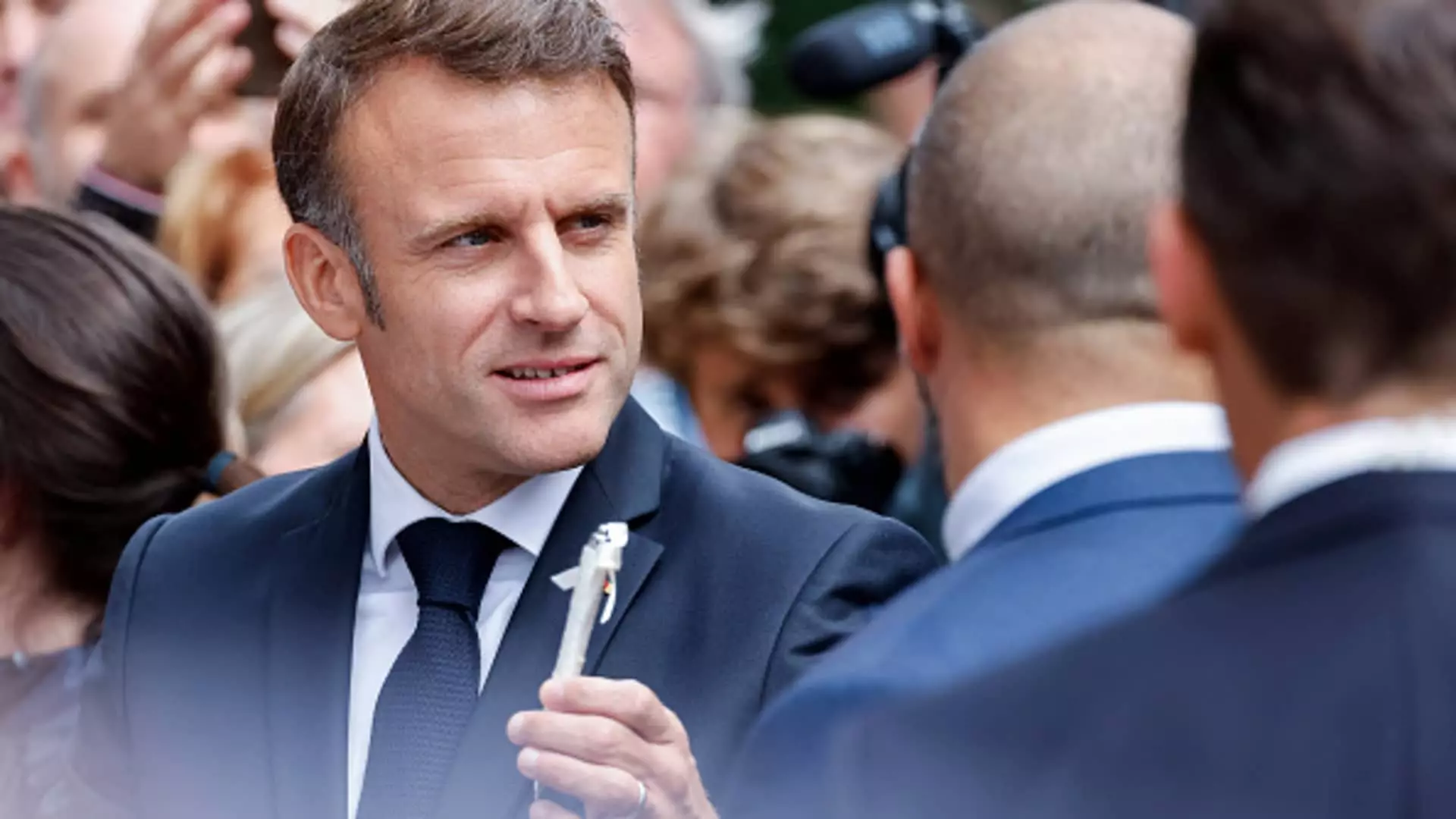The recent decision by French President Emmanuel Macron to call for a snap election has yielded complex repercussions for his leadership and France’s political trajectory. What was intended to solidify his government’s mandate has instead unveiled a more fragmented and contentious parliament, highlighting the intricate dynamics of contemporary French politics.
Macron’s primary goal in calling for a swift legislative vote was to establish clarity regarding public support for his administration. However, political analysts like Armin Steinbach from HEC Paris assert that this strategy has backfired. Initially, Macron envisioned a strong mandate that would reaffirm his centrist position against the rising influence of the far-right Rassemblement National (RN). Yet, the outcome has shown a significant shift in the parliamentary landscape, resulting in a distribution of power that complicates governance.
The immediate context for this election was the troubling upward trajectory of the RN, which had made notable gains during the recent European Union elections. Concerned about the RN potentially clinching victory at the national level, Macron pushed for a prompt electoral response. Nonetheless, the election results indicate that while the RN’s influence in terms of parliamentary seats has increased, it has not translated into a first-place finish. This nuance suggests that while the far-right’s presence is amplified, it remains secondary to the left-wing New Popular Front coalition.
The fragmented nature of the new parliament, with roughly one-third of seats occupied by leftist parties, another third by Macron’s centrist group, and the remaining third by the right, presents unprecedented challenges for policy-making. Steinbach warns of potential gridlock: “It’s fragmented and there’s a risk of a gridlock.” Such a divided legislative body stymies the executive branch’s ability to pursue a cohesive agenda, particularly concerning critical issues like public finances and national debt management.
The larger ramifications of Macron’s weakened position extend beyond domestic policy. Analysts like Tina Fordham suggest that this electoral setback undermines Macron’s standing on the global stage, making it arduous for him to uphold his existing policy framework in an increasingly polarized climate. With the European Union scrutinizing France’s budget deficit—which exceeds the 3% threshold—navigating these financial concerns will be particularly daunting amidst parliamentary discord.
While the immediate electoral outcome is not favorable for Macron, it is essential to view this scenario within a broader temporal context. The political landscape may be volatile now, but significant shifts can occur leading up to the 2027 presidential election. Despite the RN’s reduced electoral victory, observers would be unwise to dismiss its future potential. As Steinbach posits, “For today it’s a loss for them, but it doesn’t tell us anything about the 2027 presidential election.”
This sentiment underscores a critical aspect of political analysis: the ebb and flow of party fortunes. The RN, though stymied in its quest for immediate dominance, has nevertheless increased its share of parliament, indicating that its base of support may continue to grow. The upcoming years will serve as a barometer for the party’s resilience and adaptability in the face of shifting voter sentiments.
For Macron and his centrist bloc, the pathway forward is fraught with challenges. Balancing the demands and agendas of competing factions in parliament will require adept negotiation and dialogue. Moreover, maintaining public confidence amid economic pressures and political instability will necessitate innovative strategies that resonate with a diverse electorate.
Macron’s gamble for clarity through a snap election has yielded a politically complex landscape. With a fragmented parliament and heightened tension between left and right factions, the future of governance in France remains uncertain. The implications of this electoral result will echo into the 2027 presidential race, marking a critical juncture in French politics as leaders navigate an increasingly divided and unpredictable environment.


Leave a Reply